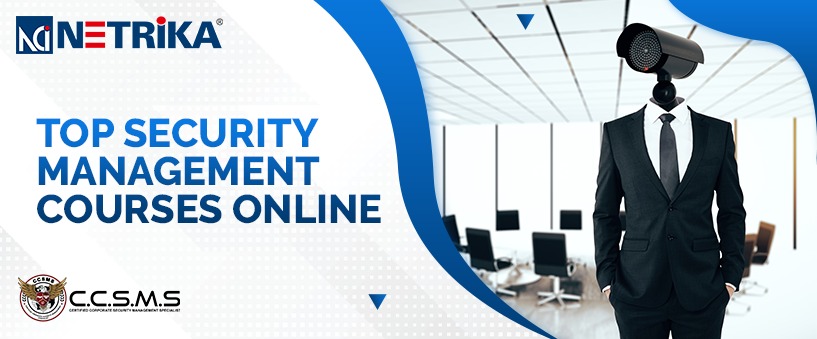
Top Security Management Courses Online
What is security management course?
Every organization’s first responsibility is risk management and security. Although it is impossible to eliminate all risk, there are ways to mitigate it. With the top security and risk management courses, professionals can ensure they have the necessary skills and knowledge to create safer settings and mitigate security threats. The best security and risk management courses can help you become a security manager, security analyst, private investigator, event security consultant, or security risk consultant across industry verticals.
The process of discovering, assessing, and reducing security threats is known as security risk management. These can be the result of natural calamities such as earthquakes, human faults such as employees improperly accessing information, or system breakdowns caused by hackers exploiting IT weaknesses. Risk assessment assists organisations in understanding the nature/type(s) of threats against them so that mitigation plans can be designed to lower the likelihood and impact of an incident occurring.
A Certificate in corporate security management studies (CCSMS) from ASIRS can assist you in accumulating the essential skills as well as help you upgrade your skills. With a selection of online courses that will teach you everything you need to know to improve your professional visibility, CCSMS identifies itself as the ideal course for security management professionals.
Is security management a good career?
The most important thing to understand about a career in security and risk management is that there are numerous options available. Security experts can specialise in physical security, information security, or cyber security. Risk managers can be found in a range of businesses, including banking, insurance, and healthcare.
If you want to start a new career in security or risk management, CCSMS is the way to go. You can achieve a qualification while working full-time by taking online courses that offer flexible learning to meet your schedule. Alternatively, if you already have expertise in security or risk management, you could leverage your existing skills to gain this certificate through self-study, customizing your study time.
What degree is best for a security manager?
The aspirant who wishes to obtain the security management credentials must have a
- Bachelor’s degree in criminal justice or a related field
- 3 years’ experience in a security related field
What is the role of security management?
Security management specialists conduct security assessments for businesses. These experts may work in industries such as finance, security engineering, and health care. Their responsibilities include monitoring the security landscape to determine the cause of losses, preparing documentation for case reports, and scheduling security design work. They may question witnesses in order to identify those responsible for security breaches and pursue charges. They are also entrusted with training staff in security protocols, responding to crises, and recommending security improvements.
Security and risk management are critical components of the modern economy. There are more opportunities to work in this industry than ever before, thanks to increased demand from both government bodies and commercial firms. To deliver exactly what professionals need, Netrika has associated itself in delivering security courses to professionals across industrial domains.
Netrika works with ASIRS to provide the certificate in security management, which includes business espionage, corporate competitive intelligence, and corporate espionage. The course offers an overview of important security management principles, as well as their interconnected applications and roles within a corporate culture.
You’ll learn how to create complete risk-mitigation strategies for an organisation or its personnel. These credentials range from cyber security to responding to active attacks. You’ll learn how to assess a wide range of risk variables, from environmental and technical hazards to human elements like employee misconduct.

